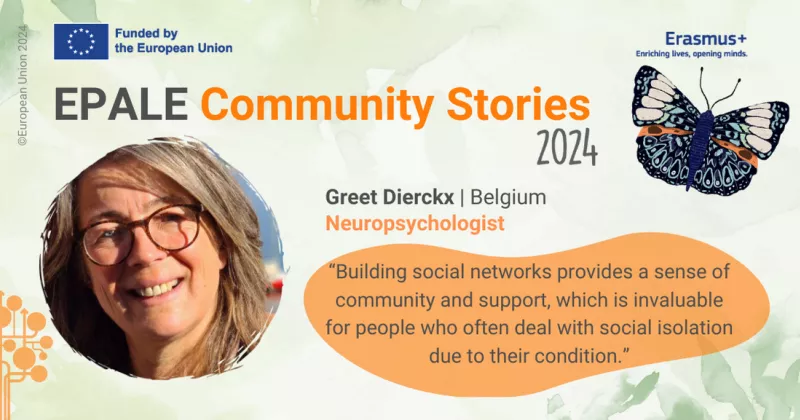How trade unions ensure quality in workplace learning

Talk to British trades unionists about learning in the workplace and they're likely to refer you to Unionlearn, part of the Trades Union Congress, the umbrella body for UK trades unions.
Through unionlearn, trades unions play an active role in promoting learning in the workplace, supporting workers to access learning and to improve the quality of learning opportunities. Indeed, top of their list of objectives is to help unions to support their members to “access and progress through lifelong learning based on quality standards".
At the heart of the work of unionlearn are Union Learning Representatives whose role is to promote learning in the workplace and to support colleagues to access educational opportunities. They help to fill an important gap: “Unions can reach out to people that mainstream services can't reach", says Iain Murray, Senior Policy Officer at unionlearn.
The Union Learning Representative role emerged in the 1990s in response to national concerns that the UK was lagging behind other nations in basic skills. At the same time, existing grassroots activities in workplaces provided the opportunity to tap into trades unionists' desire to support colleagues’ learning, often because of their own experiences. As a consequence, Representatives are, as Iain Murray points out, “really highly focused on engaging with colleagues around adult learning". But the focus isn't just on basic skills: unionlearn covers the full spectrum of learning from basic literacy and numeracy through to technical skills development through apprenticeships, and continuing professional development.
Training plays a key part in ensuring the quality of the work of Representatives. ULRs were given a legal basis in 2002 when they secured the right to be recognised by their employer, and under the 2002 Employment Act, each Representative need to be sufficiently trained to fulfil their duties. Accredited training is provided that enables Representatives to analyse learning needs, arrange and support learning and consult their employers about carrying out such activities.
Unionlearn's concern for quality reveals itself in other ways as well. It has developed a Charter for Apprenticeships and Traineeships which supports Representatives in their negotiations with employers. And it has three Quality Awards covering learning programmes, careers information and advice, and apprenticeships. These are awarded to providers - and in the case of apprenticeships to employers - who meet a range of good practice criteria (see box).
TUC unionlearn's Quality Award for courses and learning programmes |
|---|
A wide range of different types of providers have obtained the quality award for learning programmes including colleges and independent adult learning organisations as well as learning centres run by unions themselves within workplaces. Providers that achieve the standard will have shown that: |
|
Source: https://www.unionlearn.org.uk/three-quality-awards
Over the years, TUC unionlearn has accumulated some impressive statistics, with over 30,000 Representatives trained and over 230,000 people given training and learning opportunities. It first received government financial support in 1998 and, despite changes in the political make-up of government and recent budget cuts, funding continues. In September 2014 a report from the UK Parliament on adult literacy and numeracy found that unionlearn had “achieved outstanding results at a fraction of the cost of full-time formal education".
Unionlearn is an established part of the learning landscape. As Iain Murray notes, one of its key strengths is that it “grew out of the idea of helping people who need a second chance". Its range of activities embodies the view that learning should not just be for the workplace but should “empower people as citizens". Ensuring everyone should have access not just to learning but to high quality learning therefore remains a key priority.
Andrew McCoshan has worked in education and training for over 20 years. For the last 10 years he has specialised in policy development studies and evaluations for the EU, and before that was a consultant in the UK. Andrew is currently a freelance consultant, an Associate with the UK Higher Education Academy, an ECVET Expert for the UK, and a Member of the UK Education & Employers Taskforce Research Group.
Comments
Social Partners Austria
Social partners have traditionally played an important role in Austrian adult education. They're on the board of the biggest vocational training institutes (WIFI for employers, bfi for employees) and tend to be consulted on all issues related to adult education. I also remember a number of projects in which shop stewards were trained to give education and training guidance.
Social partners
Excellent blog Andrew and on such an important subject. UnionLearn do fabulous work encouraging and supporting learning – see this page for comments https://www.unionlearn.org.uk/blog/learners-messages-unionlearn
I wonder whether there are equivalent organisations in other countries? And also what other social partners support adults in learning?






Trade Unions in Greece
Dear Andrew,
I too agree with David about the importance of the subject you brought up, especially as it highlights the responsibilities on the employee side, to further educate and develop themselves.
And to add to Gina’s opinion about social partners in Austria, I can provide some info about Trade Unions in Greece. Traditionally they represent employees/workers in all matters relating to the improvement of their work life whether educational, financial, pension-related etc.
In 2004 GSEE (the General Confederation of Labour) took the initiative to create the Education Policy Development Centre (KANEP). KANEP represents the Greek General Confederation of Labour in the area of Education and Lifelong learning, promoting the agenda of trade unions which includes employment policies, policies for combating social exclusion, and reinforcement of trade union presence in society.(http://www.kanep-gsee.gr/brief-profil)
Additionally, GSEE has created the Labour Institute (INE - http://www.inegsee.gr) which aims at strengthening the skills and the wider role of employees, members and officials of trade unions represented in GSEE. In particular, it aims to upgrade their qualifications in order to secure employment and their professional development and enhance their participation in organised collective activities.
Any other European practices that we can find out about?